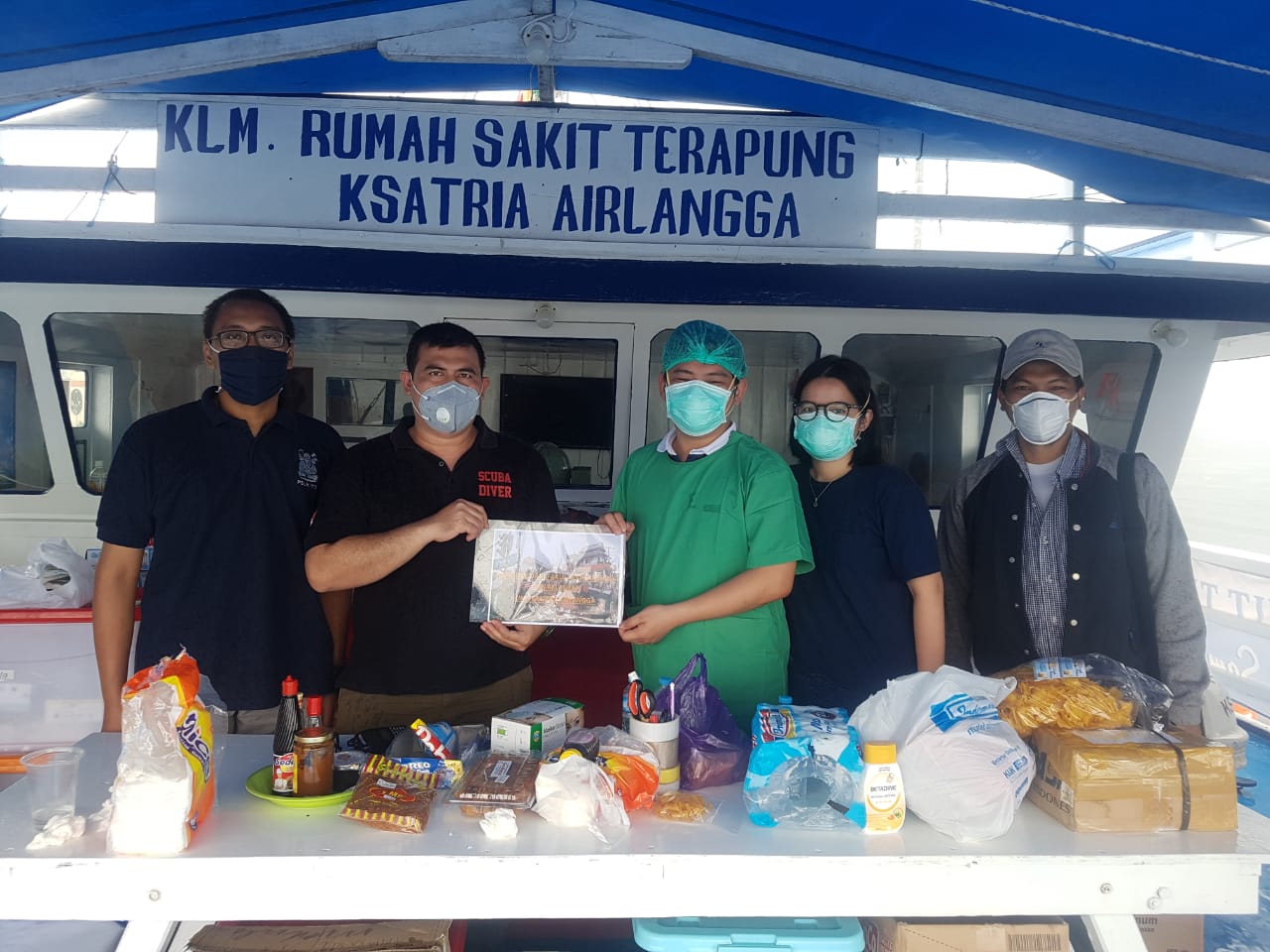UNAIR NEWS – Faculty of Fisheries and Marine Sciences Universitas Airlangga (FPK UNAIR) community service team went to Mamuju-Majene, West Sulawesi, to help and revive the fisheries sector. Dean of Faculty of Fisheries and Marine Sciences (FPK) UNAIR Prof. Ir. Moch. Amin Alamsjah, M.Si., Ph.D., formed a team. The team consists of two lecturers from the Department of Marine Affairs, Eka Saputra, S.Pi., M.Si. and Vice Dean III Dr. Eng. Sapto Andriyono, S.Pi., MT; a lecturer from Department of Aquaculture Wahyu Isroni, S.Pi., MP; as well as two FPK UNAIR students from class of 2019, Ade Chandra and Lalu Aldy Kurnia Aji.
“This volunteer team will hold training to improve processed fishery products that can accelerate the economic recovery process for coastal communities affected by natural disasters in Mamuju, West Sulawesi,” said Dr. Eng Sapto.
The community service team chaired by Eka Saputra S.Pi., M.Si carried out the activity for four days. They departed on Friday, February 5, 2021 and on Saturday-Sunday (6-7 / 2/2021) provided two trainings for the disaster victims.
When contacted by UNAIR NEWS on Sunday, February 8, 2021, Eka said that the FPK team brought medical supplies and medicines from UNAIR Faculty of Medicine. The team also brought processed fishery product ingredients such as nuggets. At the site, the team saw the potential for fisheries to be developed quickly accompanied by the Ksatria Airlangga Floating Hospital (RSTKA).
“This fishery potential can later be used as an insight into disaster prevention as fisheries is affected and exposed more by sea abrasion or tides, “he said.
“On Saturday, February 6, 2021, we provided training on the processing of fishery-based products as an effort to increase fish consumption for victims,” she added.
Apart from increasing the consumption of eating fish, Eka continued, the team held training on fish processing. It is also intended as a trauma healing for residents affected by the Mamuju earthquake, West Sulawesi.
“This activity does not stop there. Sunday, February 8, 2021, we will see the potential of fisheries, especially mangroves and coral reefs in accordance with the potential of the existing area, “he said.
“The most effective thing to do in the near future is in terms of mangrove forest management and how to use mangroves themselves,” he added.
Eka Saputra said that the fishery potential in Mamuju is enormous. Therefore, the utilization and processing needs to be done by the Mamuju community.
“Hopefully Mamuju will immediately rise from the earthquake that occurred,” he concluded. (*)
Author: Dimar Herfano
Editor: Feri Fenoria





